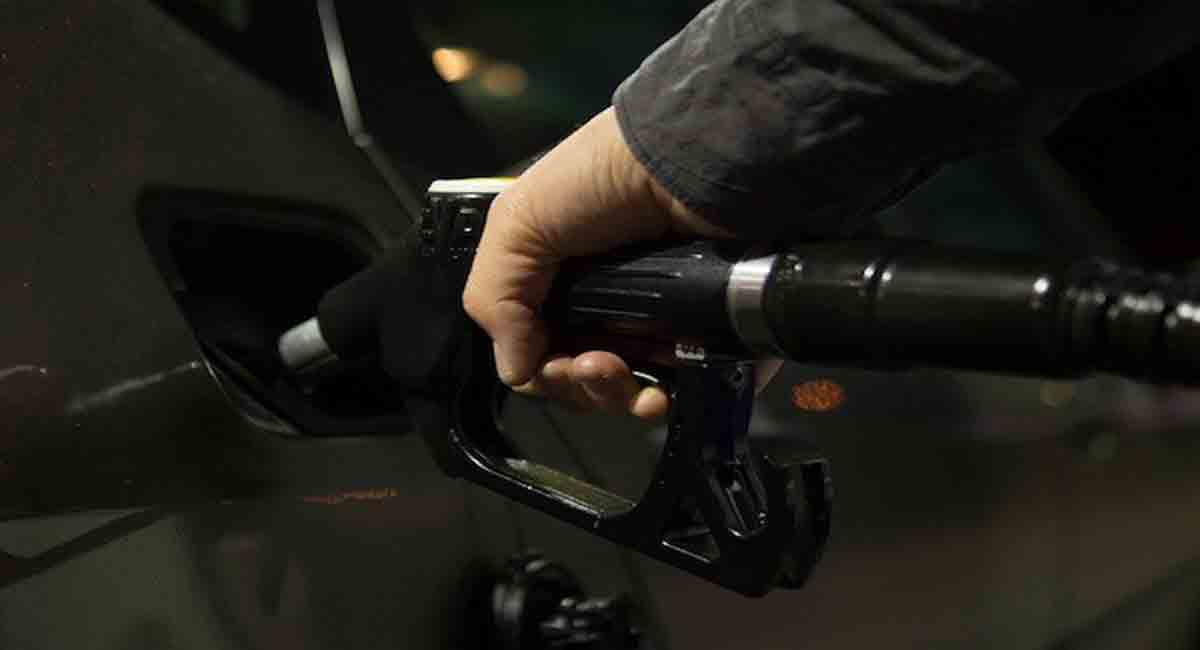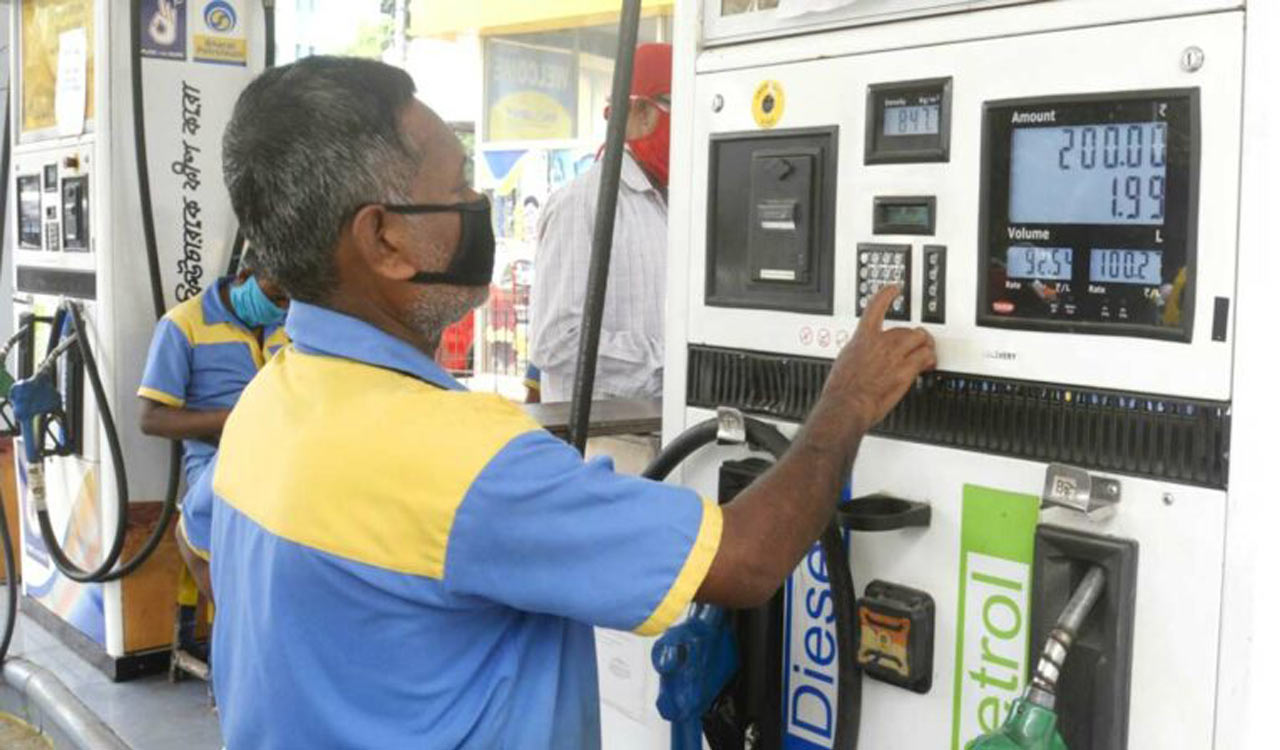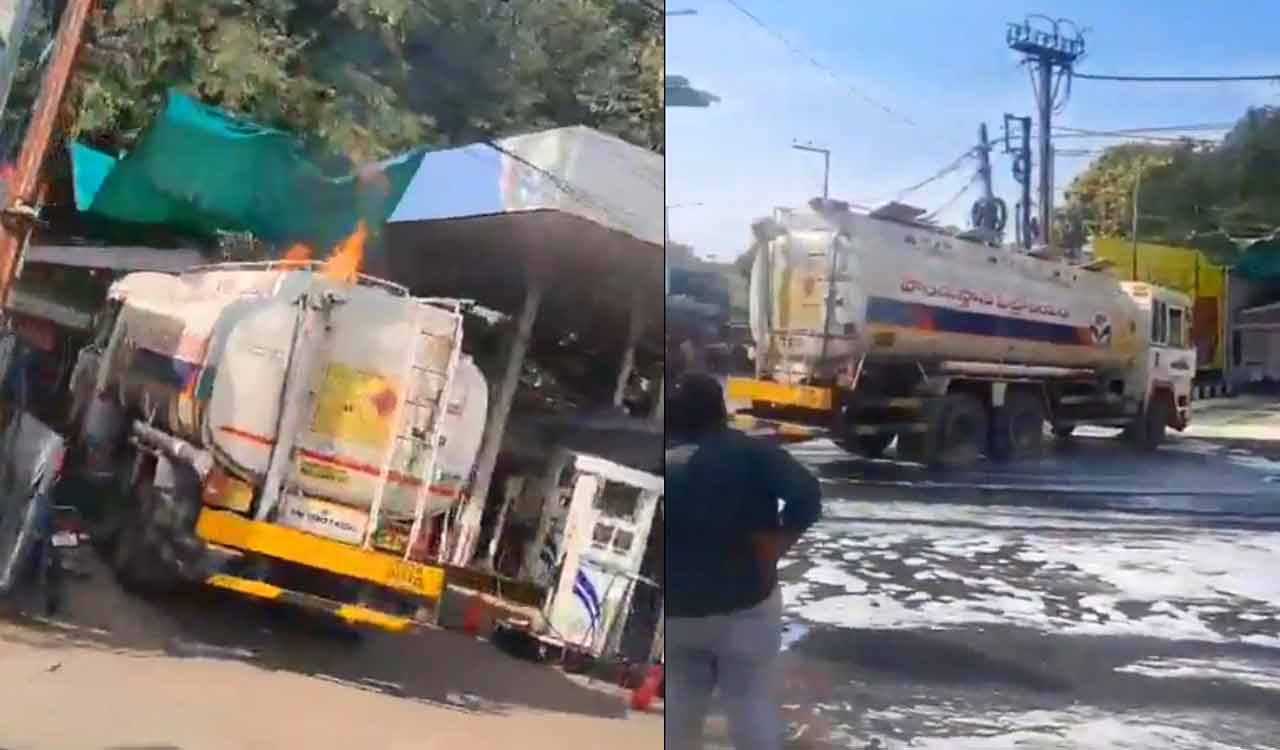How is fuel stored at gas station?
Hyderabad: We have all been to a gas station at some point, but the instances of returning home empty-tanked are few and far between. That is to say, a pump will seldom have a shortage of fuel, no matter when we turn up. What is the secret to this apparently unlimited fuel supply? And does […]

Hyderabad: We have all been to a gas station at some point, but the instances of returning home empty-tanked are few and far between. That is to say, a pump will seldom have a shortage of fuel, no matter when we turn up. What is the secret to this apparently unlimited fuel supply? And does fuel, like other domestic consumables, have a shelf life? Let’s find out!
Mystery Of Fuel Supply
Save for the vehicles visiting them, gas stations are mostly flat stretches of land marked by sporadic dispensing stations and/or attendants. While there is no visible storage unit, the vast supply of fuel is held underground in huge storage tanks. These storage tanks have been designed to hold this volatile fuel in the safest possible manner. The dispensing stations can be pre-programmed to deliver specific quantities of fuel.
Fuel Storage Tanks
Due to the hazardous nature of fuel, various safety checks are built into the fuel storage system to prevent the fuel from coming in contact with the surroundings as much as possible.
Material of the tank
Traditionally, petroleum storage tanks were made of structural steels, such as mild steel and stainless steels. However, their biggest downside is their high manufacturing cost, which is further complicated by their susceptibility to corrosion. Most metal tanks will therefore employ physical and chemical corrosion inhibition techniques.
Physical techniques generally include the application of specialized coatings. Chemical corrosion techniques involve the installation of a sacrificial plate with the body of the tank. This plate supplies free electron that bring about corrosion and are consumed in the process.
This prevents any change in the chemical composition of the tank body and is known as cathodic protection.
New tanks are generally made of polymers, such as HDPE (high density polyethylene), or even fiberglass. The chemically inert nature of these polymers ensures that the tanks will neither contaminate the fuel nor succumb to external infractions.
Overfill Protection
The volatile nature of fuel heavily restricts the amount that can be held in a tank at any given time.
Since fuel and its vapour simultaneously exist in the tank, excessive filling can result in the creation of a very high-pressure environment within the tank, which could lead to an explosion. Thus, there are various measures built into a fuel tank to monitor the quantity of fuel stored within it.
1. Flapper valves: These are disc-shaped, one-way valves responsible for cutting off the flow of fuel into the tank when the desired level of fuel is filled.
2. Ball float valves: Just as flapper valves are concerned with fuel entering the tank, ball float valves are responsible for regulating the amount of fuel vapour exiting the tank. Since vapour is important in the prevention of overfilling, it is important not to let extra vapour escape. Ball float valves block the outward flow of fumes once the threshold has been reached by blocking the vent pipes present in the fuel tank.
3. Float sensors: These electronic sensors convey the real-time status of the fuel level present in the tank. The rate at which fuel is dispensed can be compared with any abnormal fuel flow to determine the possibility of a leak.
Leak Detection
Leak prevention and detection are ongoing activity in all underground oil tanks. Leaks are usually detected by attaching sensors at both the tank and the plumbing levels to ensure the complete monitoring of the fuel being filled and dispensed.
Along with these measures, fuel tanks are now designed as double-walled structures, the hollow area is filled with brine. By monitoring the pressure of the brine, the overall integrity of the tank structure can be determined.
Does Fuel Rot?
This may surprise you, but the bad gas that your mechanic probably warned you about is a real thing. That is to say, fuel does have a shelf life, after which it loses its combustible properties. Gasoline is observed to have a life of roughly 6 months when stored in the most appropriate conditions.
Diesel, however, can last up to 12 months, beyond which it starts forming a gooey mess that can damage the internal parts of the machine in which it is used.
It is usually observed that storing fuel at higher temperatures accelerates their deterioration.
There is also a risk of containers degrading, the residue of which could contaminate the fuel, rendering it unfit for use. Using such fuel can prove detrimental to your equipment and vehicles. Thus, it is generally advised that one should change the fuel on a vehicle that has been standing still for any extended length of time.
- Tags
- Fuel
- Fuel Rot
- HDPE
- Leak Detection
Related News
-
Archer and Jacks lead England to win over Sri Lanka
5 hours ago -
India’s batting exposed in heavy loss to South Africa
5 hours ago -
Sports briefs: Ayaansh, Adhya emerge champions in sub-junior tennis
5 hours ago -
Siddhanth-Donski emerge doubles champions at Delhi Open
5 hours ago -
Opinion: Work from anywhere, belong nowhere
5 hours ago -
Editorial: Towards democratising the Artificial Intelligence
6 hours ago -
Doha to host ICC Board meetings in March
6 hours ago -
Degree student dies at swimming pool in Alwal
6 hours ago




